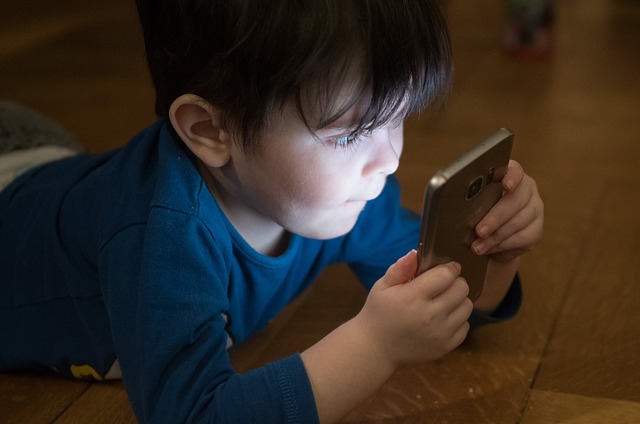What’s a good age to give your child a phone? Why?
The face of technology is rapidly changing and children are exposed to it at increasingly younger ages than ever before. When it comes to parenting, finding the right time and boundaries can be tough.
READ ALSO: 15 must-see places for an Arizona road trip
To help new parents with deciding when to give their child a phone, we asked other parents and child care professionals for their best insights. From considering alternative solutions to waiting until 8th grade, there are several strategies that may help you decide on the right time to get your child a phone.
Here are nine tips to help you decide what age your child should get a phone:
- Stay in Touch with Independent Pre-Teens
- Use Tablets and Computers First
- Review Maturity Level and Responsible Use
- Wait Until Eighth Grade
- Consider Alternative Solutions
- Simplify the Phone
- Avoid Security Risks
- Weigh the Pros and Cons
- Assess Social Norms and Tracking

Stay in Touch with Independent Pre-Teens
I believe that phones should be given to children once they enter middle school. This is a great age because they are starting to become more independent and it is important that you can get in touch with them when needed! Prior to then, all they really need to know is the time so they can be ready for carpooling and after-school activities.
Dale Gillespie, Tic Watches
Use Tablets and Computers First
In today’s world, children are born into a technology-driven society. It is important for them to be able to navigate this influx of information, in due time. They need to learn proper smartphone and internet etiquette. Being proficient in technology for children is a must. I recommend that a child should be given a phone around the age of 17. By that time, they have already been using tablets and computers at school, so the next step is to become familiar with a smartphone. A smartphone can be a teaching tool for parents on how this digital age affects their perceptions of society and life in general.
Peter Babichenko, Sahara Case
Review Maturity Level and Responsible Use
There are so many considerations when contemplating getting your child a cell phone. I am concerned about unlimited internet access, technology addiction, and mental health as it relates to providing a mobile device to my children. In addition, they already get plenty of screen time thanks to their tablets and school needs. Given that, in my family, I don’t plan to provide mobile phones for kids until about eighth or ninth grade. By this age, they will have a proven track record of responsible technology use via school and personal tablet use as well as the maturity level to take on such a responsibility. In the meantime, my kids have access to their tablets with parental controls that monitor screen time and the opportunity to stay in touch with friends without smartphone usage.
Meryl Schulte, Markitors
Wait Until Eighth Grade
There’s a social media movement out there, #WaitUntil8th, advising that kids should not be allowed access to a device or social media accounts until 8th grade (around age 13), and for good reason. While kids today may need access to a cell phone with a limited number of phone numbers to call (such as Mom and Dad in case of an emergency or to pick up from practice), by giving your child a device with open access to the internet, you’re making them vulnerable to the whole digital world.
Lauren Patrick, Curricula
Consider Alternative Solutions
As time goes on this question becomes more challenging to answer. 15-years ago, students didn’t need to know how to use a computer until they reached middle school. With the recent pandemic, we now have 3-year olds using Zoom to get into their Pre-K lessons. There is now even a market where there are smartwatches that double as phones where children can call a select group of people that the parent sets. If we are discussing a solution where the parents are able to control who is called and how it is used, there are advantages to giving these earlier on as to get them used to the idea. As for a full smartphone with all capabilities, I wouldn’t give one of these until they are able to fully comprehend the responsibility of what it means to have the device.
Steven Brown, DP Electric Inc
Simplify the Phone
I recommend allowing your child a phone when they turn the school-age of 5. At this age, they should be able to function with a simple phone and they will be in situations when they are away from you as their parents. They will also be able to use restraint from playing with the phone as well. This doesn’t have to be a smartphone, just a simple flip phone with numbers programmed into it for emergencies. This way if they need to call you they can simply open the phone, hold a single number and reach you immediately.
Mark Smith, University of Advancing Technology
Avoid Security Risks
It’s important to not jump the gun when giving your child his or her first phone, and there are a few reasons why. Children are incredibly susceptible to theft when it comes to using a device’s online connectivity, and my rule of thumb is to wait as long as possible before giving your child a personal device. I don’t want parents to worry about their child leaking personal or financial information while using the internet, so it’s best that the child is at an age where they understand the implications of putting private information out into the world. I have worked in cybersecurity for a long time and have had far too many parents come to me because their child accidentally leaked sensitive information. Don’t let this happen to you. Instead, have a conversation with your child and make sure they understand the privacy risks.
Heinrich Long, Restore Privacy
Weigh the Pros and Cons
Each parent must make the decision whether or not to give their child a mobile phone and at what age. The average age at which children receive their own phone is 10.3 years in the United States. Experts believe that the later the better. It can be difficult to lock the door after it has been opened. The best way to figure out whether it’s time to give your child a phone is to break down the considerations that go into the decision and consider the benefits and drawbacks in light of your own family’s needs. Know what you’re getting yourself into, both functionally and socially.
Chris Taylor, Profit Guru
Assess Social Norms and Tracking
The child should be mature enough to keep track of a phone and keep it safe. In some cases, a child as young as five may take the bus home or be away from responsible guardians for a small period of time, in which case, the connection a phone can bring is irreplaceable. If a phone is not needed for that type of situation, it’s ideal for a child to wait to get a phone until their social situation dictates–usually around fifth or sixth grade.
Regardless of age, the phone should have some sort of parent/guardian controls installed. At a minimum, the parent should be able to monitor the amount of screen time and apps downloaded. I prefer ones that monitor (and shut down) apps after a certain amount of time. I also recommend guardians that alert parents to potential inappropriate behaviors, like bullying or sexual content.
Bonnie Toth, Kids’ Co-op
Terkel creates community-driven content featuring expert insights. Sign up at terkel.io to answer questions and get published.




